3rd party tags impressions & clicks discrepancy problem • TCF 2.0
TCF 2.0 as a new source of problems with the campaign discrepancies for 3rd party tags used in the digital campaigns. What is TCF 2.0? Shortly, TCF became a privacy standard to...
Filter by Category
Filter by Author
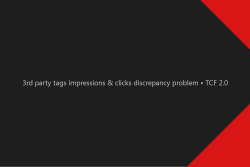
TCF 2.0 as a new source of problems with the campaign discrepancies for 3rd party tags used in the digital campaigns. What is TCF 2.0? Shortly, TCF became a privacy standard to...
Posted by Wojtek Andrzejczak

Learn how you could optimize video files for Rich Media Creatives to avoid problems on mobile devices. What is HandBrake? HandBrake is a free software for Mac, Windows, and Linux...
Posted by Wojtek Andrzejczak

Rich Media Creative is an HTML5 creative which contains advanced features like audio or video components. It can also be used for expandable creatives and allows tracking multiple user events.
Posted by Wojtek Andrzejczak
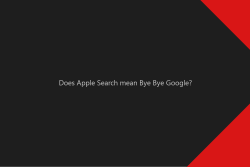
Apple wants to replace Google Search with its own Apple Search product. What consequences will it have for the advertising industry? iOS 14 introduces Apple Advertising A few...
Posted by Wojtek Andrzejczak
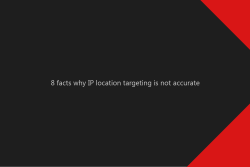
IP location in advertising is nothing new, but if and how accurate it is? How do we know where this user using an IP is? What IP exactly is? IP stands for Internet Protocol...
Posted by Wojtek Andrzejczak

What will the iOS 14 Approximate Location change? When and how will native apps be able to use a precise location? New location screen With the new iOS 14 also comes a new...
Posted by Wojtek Andrzejczak

Apple deprecating IDFA on iOS 14 but also introduces the Apple Advertising option in the privacy settings. What could it mean? iOS 14 beta With the beta versions of the iOS 14, we...
Posted by Wojtek Andrzejczak

Apple, with the release of the iOS 14, will kill IDFA. What will happen if Google will also removes GAID from Android? Apple kills IDFA and GAID with one move. As we know, Apple...
Posted by Wojtek Andrzejczak

How will the programmatic mobile advertising change after the iOS 14 release? How we’ll be able to run programmatic campaigns? YT#2 – iOS 14 vs. programmatic advertising How...
Posted by Wojtek Andrzejczak
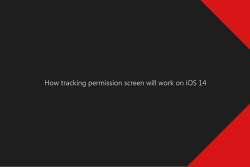
Learn more about the new tracking permission screen that Apple has introduced in the iOS 14. YT#1 – iOS 14 tracking permission screen Why has Apple decided to turn off IDFA?...
Posted by Wojtek Andrzejczak
TCF 2.0 as a new source of problems with the campaign discrepancies for 3rd party tags used in the digital campaigns.
Contents
Shortly, TCF became a privacy standard to communicate between websites, ad servers if a user is willing to be tracked and share his information for marketing purposes.
Each website should ask the user if he agrees to be tracked for marketing purposes. If he agrees, then marketers can collect user data and deliver retargeting campaigns to him.
The user choice is to send each ad unit on the website and then transmitted to every connected 3rd party ad server delivering ads to the user.
Often, publishers use 3rd party tags to deliver ads, and sometimes ads are embedded with additional nested levels.
For example, you use the 3rd party CM360 INS tag in the other 3rd party CM360 account.
GRPR’s macros included in the INS tags represent TCF 2.0 standards.
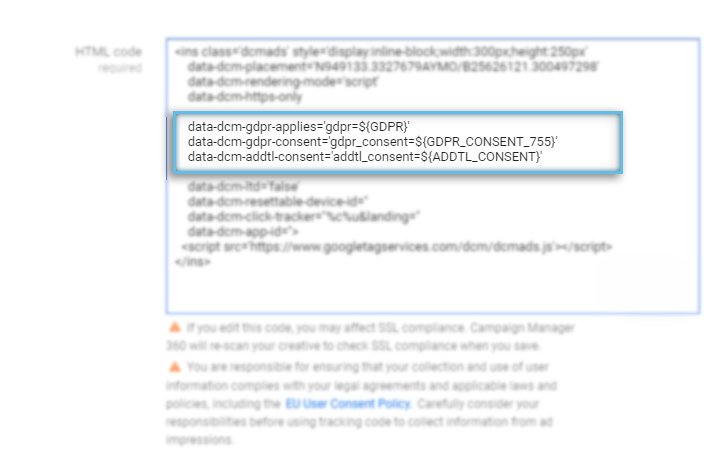
I’ve noticed an increasing amount of discrepancies in the delivered impressions and clicks between our and the clients CM360. The discrepancy is reported at around 70-80%.
Switching 3rd party tags to ZIP files with original HTML5 files and attaching Impression and Click tracking events (client’s Ad Tracking ads) also did not help.
After checking multiple aspects of the setup, the last thing left was checking if removing TCF 2.0 macros from both INS tags and Ad Tracking events (impression + click) will help.
What a surprise, suddenly all numbers matched, discrepancies disappeared.
Simply, when “${GDPR}” does not contain any value (is empty) then, Google collets everything like it always did.
But, as soon as you pass a value like 0 or 1, Google respects this value.
If you pass the wrong value, then Google assumes you set “0”, so the user does not want to be tracked.
data-dcm-gdpr-applies=’gdpr=${GDPR}’
Also GDPR_CONSENT_755 and ADDTL_CONSENT values might play a huge role as a troublemaker.
data-dcm-gdpr-consent=’gdpr_consent=${GDPR_CONSENT_755}’
data-dcm-addtl-consent=’addtl_consent=${ADDTL_CONSENT}’
Websites and Apps usually contain multiple ad units. It can happen that some of them have passed wrong values, which might affect the reporting problems, as described above.
Unfortunately, it is impossible to identify which ad units on the website/app are causing the problem.
It also seems that the implementation of the TCF 2.0 is still not entirely done as we’d like to see.
Of course, removing TCF 2.0 macros is not a good idea, but it is good to check if it is a cause of the discrepancies.
Subscribe to our newsletter!
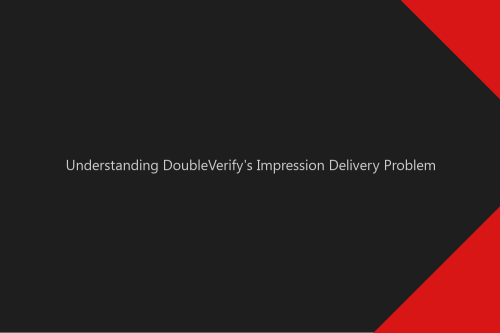
Online advertising has become an essential part of promoting products and services. Companies rely on third-party verification services like DoubleVerify to ensure their ads are...
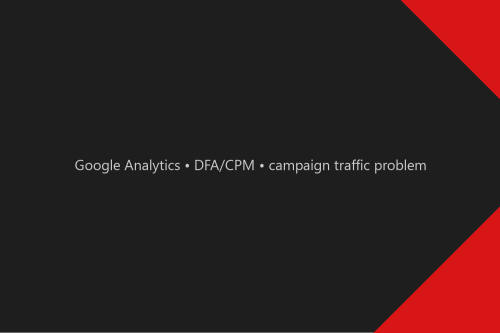
Google Analytics doesn’t track your Google Marketing Platform campaign traffic correctly if your traffic is identified as DFA/CPM.
Was CM360 70-80% higher or the third party platform? Thanks for sharing.